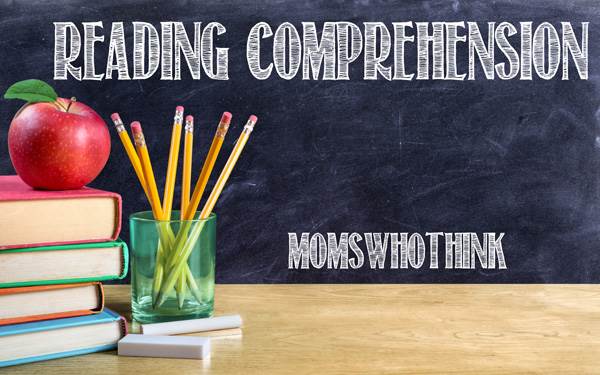Reading is great, but knowing what you just read is even better!
Parents beam with pride and accomplishment as their children begin to read. Those early explorations into books are precious, but just because your child can sound out the words does not mean they know what it all means.
This happens to all of us, reading along then realizing we have no idea what that last paragraph meant. Adults know to go back and re-read more carefully. This skill is called reading comprehension, and just like letter recognition it needs to be learned.
Below are simple strategies to help young readers improve their reading comprehension.
Learning and Improving Reading Comprehension
It Takes Time to Learn to Read
As excited as we all are for our children to read, it can be arduous to sit and listen to them slowly sound out each word. When you sit down with your child, make sure you are not in a rush, and focus your whole attention on your child and the book.
Help them with difficult sounds so they don't get frustrated ,and pour on the praise. Simply practicing every day for at least 15 minutes is one of the best time-proven ways to help your child's reading comprehension skills improve.
Ask Questions About What Your Child is Reading
To check that your child understands how the words that they read connect to form a story, pause at intervals in the story to talk about the story. Ask your child what just happened. If they can't tell you, go back and help them reread to get the basic thread of the story.
Another good technique is to ask them to predict what they think will happen next. This not only checks understanding of what they have just read, but keeps them excited to read more.
A Picture is Worth 1000 Words of Comprehension and Meaning
Children's books are full of fun and imaginative pictures; this is not just for decoration or filler. Use these pictures to help your child connect the dots between the words they are reading and the concepts the story it talking about. Read the words, then look at the pictures and talk about what is happening on in the story on that page.
Another way to bring art to the rescue is to read a story to your child then ask them to draw or paint their own original creation to illustrate what the story means. This is a fun activity that can be done together and will improve reading comprehension. Art is especially useful with frustrated readers, because in their minds it's finger painting, not reading.
Get Them a Tutor If Needed
Many children get the hang of reading comprehension with enough practice and patience. But if, after a while, your child isn't getting the hang of it, you may need to get them extra help. Tutors are readily available in this day and age, both in-person and online. Online tutors tend to be easier to find, but they are more expensive. Pick whichever option fits your child best.
Many tutors are current or former teachers, or are otherwise experts in their field. They can help your child make progress when they're stalling. They know all sorts of great techniques to help. Plus, they can boost your child's confidence so they'll be able to avoid academic anxiety.
It's important to remember that needing a tutor for your child doesn't mean you or they are a failure. A lot of children need extra help through school. It's nothing to be ashamed of! By getting your child the help they need, you'll be setting them up for success in life. This is true of anything your child struggles with, not just reading comprehension.
Conclusion
Improving reading comprehension is a process, and it is magical to watch the joy of books open to a new generation. Be patient with the process; your child is putting all their effort into recognizing the letter, remembering its sound, then stringing sounds together to form words. It is little wonder there is no brain power left to understand what it all means!
With practice, repetition, and loving help from you (like guided reading), your little reader will be diving into books on their own in no time.
The image featured at the top of this post is ©iStock.com/RomoloTavani.
